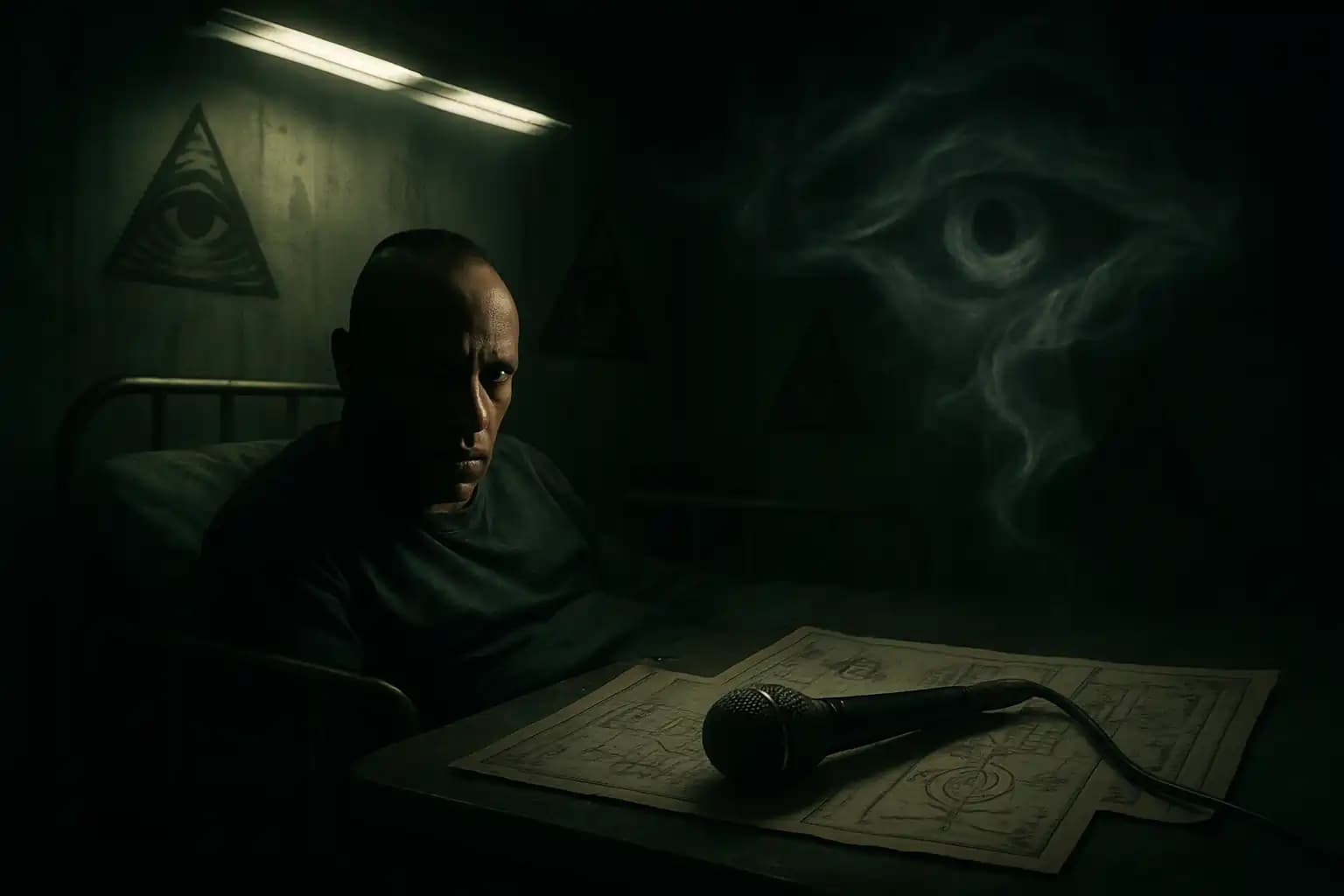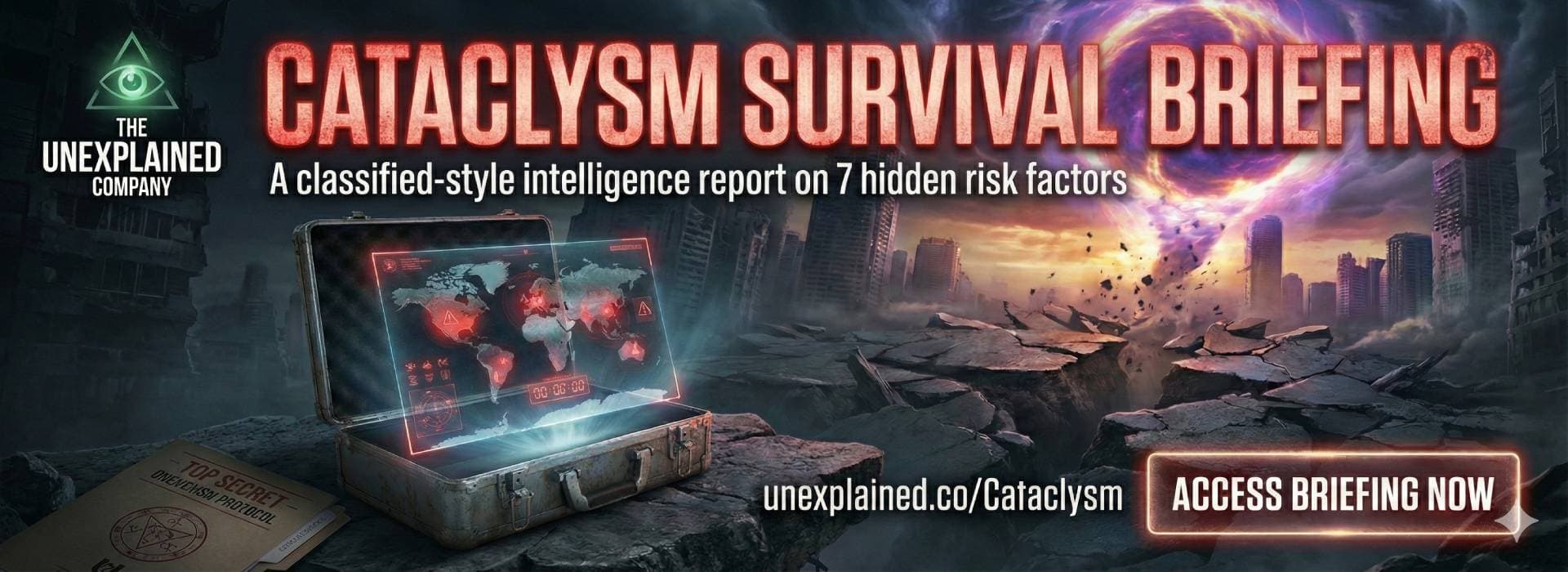Prodigy never shied away from controversy. The Mobb Deep legend—born Albert Johnson—spent decades revealing harsh truths about life, violence, and unseen forces in the music industry. His death in a Las Vegas hospital on June 20, 2017, was as strange as his lyrics: reports claim he choked on an egg while battling complications from sickle cell anemia. For many online and in hip-hop circles, the story didn’t add up.
What occurred in that Nevada hospital? The world lost a rapper who often challenged the “Illuminati’s” grip on music and culture—a grip he believed stifled creativity and dissent. His outspokenness raised red flags. Hip-hop’s obsession with conspiracy has intensified, reflected in this in-depth exploration of how secret societies shape the genre’s mythology. Prodigy was frequently discussed on Reddit and cited as an artist exposing the industry’s “dark side,” inviting both acclaim and danger (curated list of Illuminati-accused rappers).
The Official Narrative vs. The Conspiracy Machine
The Las Vegas coroner’s office deemed it accidental asphyxiation. Yet doubts linger—an echo familiar to anyone studying the culture of coverups that fuels modern myth-making. Industry insiders and long-time friends note that Prodigy, a sickle cell warrior, had outlived median survival predictions for his disease by decades. They reference his robust activism, disclosures about medical experimentation, and warnings about “the system.” Was it hospital foul play? A silencing? Or merely a tragic twist of fate in a life spent defying the odds?
Similar patterns emerge in hip-hop; examine the saturation of Illuminati motifs and the artists—often at the peak of their careers—who suddenly encounter violence or untimely deaths. As seen in intellectual studies on occultism in rap, the genre often reflects a fascination with secret power structures, borrowing imagery from occultism and conspiracy movements to explain, or distract from, the dangers of fame.
Prodigy’s Legacy: More Than a Conspiracy
Despite the rumors, Prodigy’s legacy rests in his music and activism. Alongside Havoc, he crafted hardcore hip-hop that fused poetic bleakness with sharp observation. His family lineage runs deep in musical history, with jazz, doo-wop, and soul woven into his DNA, as his Wikipedia biography details. He navigated beefs, violence, and incarceration. He openly discussed his sickle cell battles, authoring books on health, prison, and industry exploitation. But true believers question whether that shields him from suspicion when he dies just as he speaks out about power and secrecy—topics examined in this investigation of hidden realities.
The conspiracy runs deeper for some. From Russian equivalents of Area 51 to apocalyptic warnings from AI prophets, many believe they see invisible hands everywhere—especially when celebrities and revolutionaries die young.
The Culture of Suspicion: Hip-Hop, Death, and Power
It’s tempting to dismiss the Illuminati mythos as paranoia, yet a culture of real threats and dangerous games exists. Prodigy’s case underscores an industry where fierce competition, unresolved feuds, and institutional pressures make untimely deaths likely and expected. The absence of transparency breeds suspicion, giving even ordinary tragedies an aura of intrigue.
A world obsessed with satellite surveillance and secret bases in China (see these intelligence assessments) doesn’t easily consider Prodigy’s sudden death an accident. The intersections of art, conspiracy, and dark history keep discussions alive, even as facts fail to resolve doubts.
Remembering Prodigy: Victim, Visionary, or Both?
Could Prodigy have been silenced for his knowledge and words? Evidence for a conspiracy is as thin as a hospital bed sheet, yet the urge to connect the dots remains strong. He wasn’t the first to warn against hidden cabals and won’t be the last. Prodigy’s story mirrors a society enveloped by secrecy, suspicion, and the need to impose order on chaos—motifs echoed in narratives from urban war games to nuclear brinkmanship.
Real or imagined, the Illuminati’s reach measures not in facts but in belief. For rap fans, conspiracy theorists, and anyone who has lost someone young and irreplaceable, Prodigy’s death presents a riddle that lingers. For more unfiltered deep dives into enduring mysteries, from secret societies to state secrets, keep your browser set to Unexplained.co.





